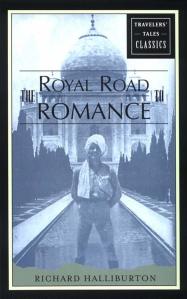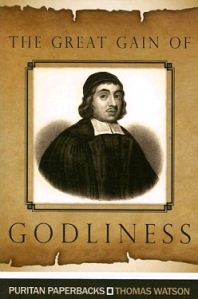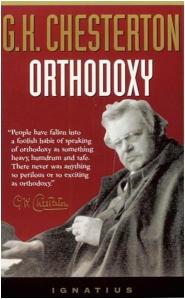I don’t think I’ll ever stop reading. I’ve finally stopped wondering if it would be possible for me: it just isn’t. No matter what’s going on, no matter what I’m doing, there will always be a book. I have not decided whether that’s a good or a bad thing.
Sometimes I am inspired to read fast, sometimes I am inspired to read slowly. With the rates of different books, I find that the ones I read slowly get grouped together. So, unfortunately, I have 18 currently reading books. I decided to knock a few of them off the list, recently, so I’m working on it.
Last year I made a book of 100 books to read in 2010. I only read 50 of them, but I think that 2009-2010 were the two best reading years of my life. I discovered so many different worlds and writing styles and characters. I cannot tell you how many times I’ve been heartbroken and was forced to play Chopin for days at a time in order to sympathize with myself. But I also cannot tell you how many times my heart has been filled with joy at wonderful stories or deep-meaning themes. It’s been an adventure.
So without further ado, here are my top 11 books of 2009-2010. :) They’re not listed in order of favorites… since it’s so hard to have a top favorite book.
 The Royal Road to Romance – Richard Halliburton
The Royal Road to Romance – Richard Halliburton
I never found Geography to be so thrilling. This book inspired me to look at maps more… Richard Halliburton uses his sense of romance and passion for the wild and “unheard of” to pen his tale of his first adventure. The style is invigorating and colorful, the stories and myths he combines with the exotic places he visits are wonderful to read about. He took forbidden pictures at Gibraltar, and then mailed copies to the officials saying he was sorry, but he wasn’t staying in one place so it was impossible to leave an address. He always traveled first class with a third class train ticket. He camped on the Cheops, and took a bath in the Nile. He spent the night in the gardens of the Taj Mahal, he climbed the Matterhorn in winter—and Mount Fuji. His fearless approach to travel and adventure make the book exciting to read.
An adventurer like Halliburton deserved no less than a heroic and dramatic death. He thought of jumping off of Gibraltar rock and flying down into the sea where the moon flirted with the waves. He thought of many drastic ends. I suppose he was quite satisfied: he died at the age of 39 years (quite tragic, don’t you think?). His grave is unmarked—his ship was lost in a storm, and no traces were ever found. I think he would have been satisfied.
 The Daughter of Time – Josephine Tey
The Daughter of Time – Josephine Tey
Josephine Tey was the pseudonym used for Elizabeth Mackintosh, Scottish author. The hero of most of her books is Alan Grant, a detective of the Scotland Yard. After an accident, he is forced to lie in a hospital bed for a few months. He memorized the ceiling and made up every kind of geometric figure he could. He soon got bored. When looking through pictures he found one of Richard III. His detective’s eye, before he discovered who the person was, thought the man to be one whose life was burdened with grief. He was astonished at discovering it to be the famous murderer of the two Princes in the tower. He goes on an adventurous research trip in his hospital bed through all the different sources he can find, and finally comes up with a brilliant alternative.
I’m not quite certain whether the research done in the book is accurate or fictional, but certainly, several of the facts of the murder and the circumstances do not match up. Reading this brilliant little mystery made me realize that many of the stories in history cannot be taken for granted. You cannot say that a myth is untrue and a story with facts is true, because sometimes it turns out to be quite the opposite. The only thing you can do is look up all the books ever written on the subject, then decide your own opinion.
The Idiot – Fydor Dostoevsky
The Idiot… Where to begin? This is an incredible book. There is no other word to describe it. I was thrilled to the very last chapter, and then I was crushed. It is the only novel where the good people don’t die, but it’s almost worse that way, if that makes any sense. Now you’re not going to read it, I imagine, after such a dark report.
Prince Myshkin, aka, the Idiot, tells Lizeveta Prokofyevna Yepanchin and her three daughters a story that takes up three chapters out of the book. They go back and forth between loving him to death and thinking him entirely weird. But what the Prince relates, which takes you back in his past to the Swiss mountains and legalistic villagers, is wrought with quiet passion and beauty. The first 200 pages barely cover 12 hours of one day.
The themes in this book are almost too deep to discover. Everybody is almost too dramatic and passionate to be real, but it’s purposeful. The intricate plot, the progression and digression of the characters, the streak of epilepsy, and the philosophical tone of the novel produces something that will change your thought-life forever. It’s a haunting book.
 The Great Gain of Godliness – Thomas Watson
The Great Gain of Godliness – Thomas Watson
Lately I have been appreciating more and more the writings of the Puritans and early church fathers. An older man at church got me into Thomas Watson’s books—really, hidden treasures! The Great Gain of Godliness is precise… it’s written by a passionate, godly man seeking to encourage Christians in the right way. It’s the most humbling book I’ve ever known, as well. It makes you want to run into the arms of Christ, yet cringe with shame before him at the same time. For those who believe, it follows with a definite tone of hope.
The most amazing passage in this book was the chapter on thoughts. I thought it strange how someone who lived 400 and some years ago could get inside my head so accurately, or gauge my thoughts so exactly. He talks about how, in guarding against sinful thoughts, one must not only “not think of that….” we must look higher and set our minds on heavenly things. It sounds simple enough, but when thoughts become truly tempting, thinking of the Kingdom of God and its righteousness is not an easy thing to do. So this is a wonderful treasure to read.
 William Wilberforce: A Hero For Humanity – Kevin Belmonte
William Wilberforce: A Hero For Humanity – Kevin Belmonte
William Wilberforce… a hero for humanity… the greatest man that ever lived… my hero. If I ever get married, I want it to be to a man with the mindset like William Wilberforce. I have never enjoyed a biography so much. He was such a passionate man, he was such a humble man…. he was so magnanimous. This book is filled with journal entries, excerpts from letters to him and letters he wrote, different opinions of different critics. It is a well researched, well-written book by someone who loved Wilberforce and everything he stood for. It is truly wonderful, and I have never stood more in awe of any person than I have of him. Wracked by physical illness and pains, his purpose remained clear, and his determination strong: he lived and he finished what he set out to do. His story is amazing, and if you have not read it, this is a wonderful place to start.
Wilberforce was loved by everyone who knew him, and his aim was to think the best of everyone—even when they spoke of him in harsh and bitter terms. He always strove to seek out the best in them. One thing I love best about him was that he read and studied the philosophies of different men for a few hours every morning. His books were always underlined—he memorized passages of great books: but his most studied book was the Bible, no matter what. Even though he was a great and wonderful man, and I am a girl, he inspires me to the -enth degree.
 The Children of Hurin – J.R.R. Tolkien
The Children of Hurin – J.R.R. Tolkien
This was a birthday present from a very good friend. Unfortunately, said friend’s sister had read me the ending so I was a bit spoiled. At any event, if you want to see the powerful hold that evil can have over a human being, this is the book to read.
I have never been so stunned as I was at the end of this book. I remember lying on my bed just thinking, praying and hoping about my life, and my relationship with God. I remember shaking my head and being shocked. It was a terrible, but a good feeling at the same time. I felt like Pandora, after beholding all the evil she had let loose, and then peering inside and seeing hope. Not that I had leashed the evil….
Reading Tolkien is easy and hard at the same time. He uses such interesting expressions and phrasings that sometimes it’s difficult to grasp his meaning. But this was a truly wonderful book, and I would recommend it to anyone who loves a depressing read.
Eight Co usins and Rose in Bloom (Sequel) – Louisa May Alcott
usins and Rose in Bloom (Sequel) – Louisa May Alcott
I don’t know about you, but after the reviews on The Idiot and The Children of Hurin I’m ready for something lively and bright and cheerful. Eight Cousins (and Rose in Bloom) is precisely that. Alright, how could you not want to read a book about a small lonely girl with eight cousins who go around proclaiming their Scotch heritage? Having four brothers I can appreciate the humor that goes on between the main character, Rose, and her eight boy cousins. But like most fun stories, these have many growing up themes, or important lessons that one is learning all throughout life. Rose is not portrayed as the perfect heroine: she’s just a young girl who’s growing up and learning her life lessons.
The characters have quite a range, from the timid but well-meaning and sometimes vain Rose, to the cheerful and honest servant Phebe, to the good-natured and sensible Archie, to the handsome charmer Charlie, to the grumpy bookworm Mac, to the bright-eyed, mischievous youngsters, and never to forget the good Uncle Charlie, always seeking to instill good principals and habits in all his nephews and his niece.
 Shirley – Charlotte Bronte
Shirley – Charlotte Bronte
If you want to learn lots of new words and lots of French phrases, this is the book for you!
Most pro-feminist people nowadays would say that Charlotte Bronte was all for women’s rights and “being equal” with men. But it seems to me that this was more the journey of a girl finding something useful to do instead of sitting around reading or sewing all day. She says: “I may have half a century of life before me. How am I to spend it?” It is the travels of a young girl who first wishes to marry the man she loves and assist him in his work, and then realizes she will probably never be able to marry him, and then seeks to find a way to apply herself diligently and purposefully apart from the man she thought she couldn’t live without.
Don’t worry, I can promise happy endings for everybody. But the journeys of this young girl, and a mill-owner struggling to survive during the Napoleonic war, and an independent heiress, and a quiet, steady schoolteacher are beautiful. The character development is phenomenal. :)
 Of Mice and Men – John Steinbeck
Of Mice and Men – John Steinbeck
This book was read aloud to me and some other people by my best friend’s father. It was a year ago, and I’m still struggling with the themes. John Steinbeck introduces the dark, questioning side of reality… his books are, needless to say, depressing. I have heard different opinions on Of Mice and Men, but this is definitely a read again: not necessarily because the story is so good, but because the theme is so intense, and it leaves you wondering. There is something so raw and morbidly beautiful about the way John Steinbeck writes. It’s effective without being overbearing. In fact, the style is almost so simple is complicated. A lot of modern literature is like that, I suppose.
But anyways. Why was it on my list of favorites? Well, it appealed to my love for morbid, tragic literature; but even more than that, I have a weakness for deep books and themes, things that make me wonder and search to find answers. :)
 How The Heather Looks – Joan Bodger
How The Heather Looks – Joan Bodger
Have you ever wanted to get steeped in charming tales on a winter evening, after taking a hot shower and getting in warm clothes with a cup of tea or… wassail, while sitting by the fire listening to a winter gale?
Even if you’ve never had that interesting feeling, you should still read this book. John and Joan Bodger took their children in 1956 to spend a summer in England. They went on a scavenger hunt, really. They didn’t want to see all the touristy places—they were on a mission to find the bank from The Wind in the Willows, or the farm where Jemima Puddleduck lived, or the land of Arthur, the country of Randolph Caldecott. The two children, Ian and Lucy, provide a humorous side to the story, and you encounter all sorts of things on this adventure: gypsies, two boys riding backwards on a huge farm-horse, a Cornish festival, myths, legends, mysteries, stories, and obscure tales. She talks about books long out of print—treasures of the past. On a rainy afternoon they stop in a quaint English/Welsh village and, being hungry, buy some bread, cheese, and fresh tomatoes for their lunch, watching the villagers go to market. It is filled with charming descriptions, jaunts and rambles, and haunting stories that will make you want to see this wonderful place called England.
 Orthodoxy – G.K. Chesterton
Orthodoxy – G.K. Chesterton
Alright, I said I didn’t have a favorite. But if you want something as deep as the see, as nice as a fairy tale, and as thrilling as the novel then this is the best book. Look at his face! He was a genius!
Orthodoxy is packed full of thought. You could read one sentence of it and write an entire book on the subject. He deals philosophically (and yet un-philosophically) about maniacs, pessimists, optimists, love, Christianity, Agnostics… and these are only vague ideas of what he covers. It is an adventure to read this book.
To see the journey of a deep thinker as he battles with thoughts and ideas of Christianity that have not even entered the head of a believer is wonderful. His method of thinking, his wit and humor, his deep faith are all woven together cleverly with a colorful thread. I love him best because he believed in fairy tales, and anything that had to do with the nursery. He saw so much sense and reason inside the world of fancy, and so much to laugh at with the great determinists and philosophers of his era that it’s almost shocking to read. But you are convinced to agree with him at last! I would recommend this book to… well, everyone.
Alright! That’s it! :) Those are my top eleven. I hope you enjoyed reading about them, and now if you haven’t read any of them, I hope that at some point you will enjoy reading them. :)















